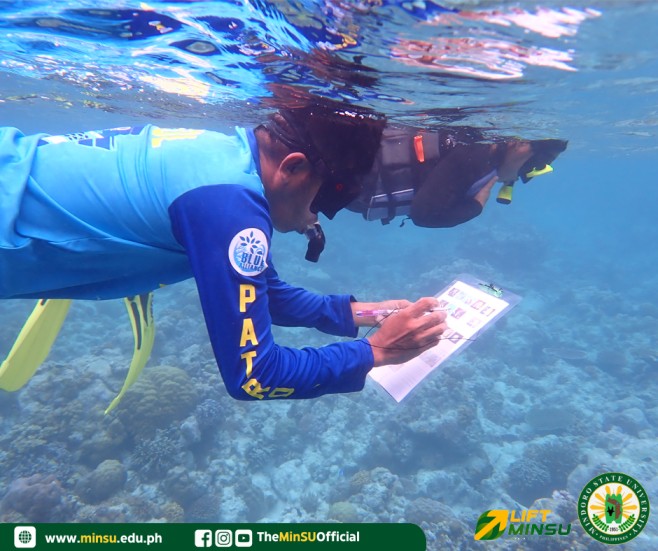
In a collaborative effort to enhance coral reef conservation, the University of the Philippines Los Baños (UPLB) partnered with Mindoro State University (MinSU) on a Training on Coral Reef Assessment using the C5 and C30 Methods held at Seasons Hotel and Apo Reef Natural Park in Sablayan, Occidental Mindoro, September 9 to 14, 2024.
This initiative was part of UPLB’s Spatio-Temporal Monitoring and Rehabilitation Technology for Enhanced Recovery of Coral Reefs (SMaRTER-Coral) Project, led by Dr. Victor R. Ticson of UPLB funded by DOST-PCAARRD.
The five-day training aimed to equip local stakeholders, including members of the Local Government Unit of Sablayan, the Office of the Municipal Agriculturist (OMA), and the Municipal Environment and Natural Office, with skills in assessing coral reef health. Utilizing the citizen science-based ALWAN methods, participants engaged in hands-on activities to better understand and evaluate health and status coral reef ecosystems.
Dr. Katherine P. Sanchez-Escalona, Dean of the College of Arts and Sciences and Director of the MinSU Center for Environmental Studies (MCES), served as a key resource expert during the training. She provided an overview of coral reef assessment and discussed critical topics, including coral reef monitoring, citizen science, and the marking of survey stations. Dr. Escalona also covered various aspects of coral reef surveys and the classification of different reef bottom types.
The training included both lecture sessions and practical simulations. Before the actual hands-on activity, participants were equipped with practical skills such as trash survey techniques, camera setup for C30 photo documentation, and land simulation of coral reef assessment using the C30 method. Mr. Rex Medina, a certified dive instructor, conducted sessions on proper snorkeling and diving techniques, ensuring that participants were well-prepared for underwater activities.
On Day 4, the participants traveled to Apo Reef Natural Park for coral reef assessment simulation activity. They established a 25 x 75-meter survey station and collected data on various indicator species, including butterfly fishes and marine invertebrates. The group also applied the C30 method to assess hard coral cover and conducted a trash survey to evaluate reef health.
After the simulation, participants processed the collected data, completing scorecards and analyzing C30 photos. These findings were then discussed and presented, allowing participants to gain insights into the implications of their data for coral reef conservation.
This collaborative training emphasized the vital role of local communities in scientific research and conservation efforts. Through citizen science, local stakeholders can contribute significantly to data collection, monitoring, and even policy-making, ensuring the sustainability and protection of coral reef ecosystems in Sablayan for future generation.
SGD Commitment: (SDG 13: Climate Action, SDG 14: Life Below Water, SDG 17: Partnerships for the Goals)
(Photos by MCES)
302 Staff
10531 Students
9 Colleges
4 Years